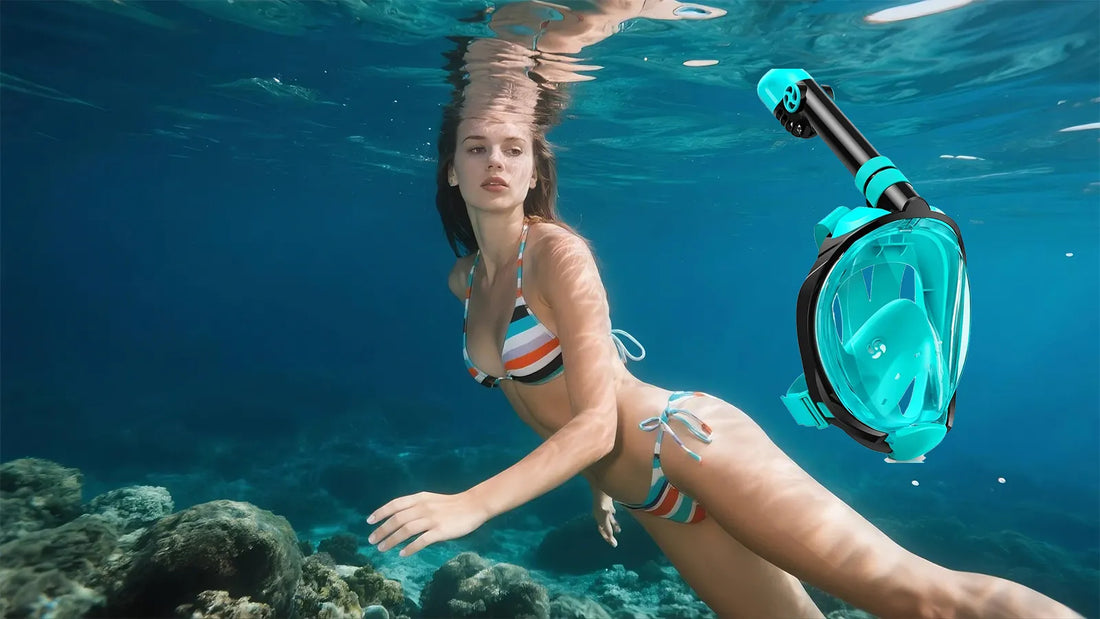Snorkeling is one of the most accessible and thrilling water activities, allowing people of all ages to explore the underwater world. But before you dive in, you might be wondering: do you need a license to snorkel? The answer isn't as straightforward as you might think. This article will guide you through the essentials of snorkeling, including legal requirements, safety tips, and how to make the most of your underwater adventure.
Understanding Snorkeling Basics
Snorkeling involves swimming on the surface of the water while using a snorkel, mask, and fins to breathe and observe marine life. Unlike scuba diving, which requires specialized training and equipment, snorkeling is relatively simple and doesn't typically require a license. However, there are some exceptions and considerations to keep in mind.
Do You Need a License to Snorkel?
In most cases, you do not need a license to snorkel. Snorkeling is considered a recreational activity that can be enjoyed by anyone with basic swimming skills. However, there are certain situations where regulations may apply:
- Protected Marine Areas: Some marine parks or protected areas may require permits or licenses for snorkeling to ensure the conservation of marine ecosystems.
- Guided Tours: If you're participating in a guided snorkeling tour, the operator may need a license or permit to conduct the activity legally.
- Local Regulations: Certain countries or regions may have specific rules or requirements for snorkeling, so it's essential to research beforehand.
Legal Considerations for Snorkeling
While a license isn't typically required, there are legal considerations to keep in mind:
- Environmental Protection: Always respect marine life and avoid touching or disturbing coral reefs and other underwater habitats.
- Safety Regulations: Follow local safety guidelines, such as wearing a life jacket if required or snorkeling in designated areas.
- Liability: If you're snorkeling independently, you assume full responsibility for your safety. Ensure you have the necessary skills and equipment.
Safety Tips for Snorkeling
Snorkeling is generally safe, but it's crucial to take precautions to ensure a positive experience:
- Choose the Right Gear: Invest in a well-fitting mask, snorkel, and fins to ensure comfort and efficiency.
- Practice Breathing: Get accustomed to breathing through the snorkel before entering the water.
- Stay Aware of Your Surroundings: Be mindful of currents, weather conditions, and marine life to avoid potential hazards.
- Snorkel with a Buddy: Always snorkel with a partner for added safety and support.
How to Get Started with Snorkeling
If you're new to snorkeling, here are some steps to help you get started:
- Learn Basic Swimming Skills: Ensure you're comfortable in the water and can swim confidently.
- Take a Snorkeling Class: While not mandatory, a class can teach you proper techniques and safety measures.
- Choose a Beginner-Friendly Location: Opt for calm, shallow waters with good visibility for your first snorkeling experience.
- Respect Marine Life: Observe marine creatures from a distance and avoid touching or feeding them.
Benefits of Snorkeling
Snorkeling offers numerous physical, mental, and environmental benefits:
- Physical Fitness: Snorkeling is a low-impact exercise that improves cardiovascular health and strengthens muscles.
- Stress Relief: The calming effects of being in the water and observing marine life can reduce stress and promote relaxation.
- Environmental Awareness: Snorkeling fosters a deeper appreciation for marine ecosystems and encourages conservation efforts.
Common Misconceptions About Snorkeling
There are several myths and misconceptions about snorkeling that can deter beginners:
- You Need to Be an Expert Swimmer: While basic swimming skills are helpful, you don't need to be an expert to enjoy snorkeling.
- Snorkeling Is Expensive: With the right gear and location, snorkeling can be an affordable activity.
- It's Only for Tropical Destinations: Snorkeling can be enjoyed in various bodies of water, including lakes and temperate oceans.
Frequently Asked Questions
Here are answers to some common questions about snorkeling:
- Can children snorkel? Yes, children can snorkel with proper supervision and gear designed for their size.
- Is snorkeling dangerous? Snorkeling is generally safe if you follow safety guidelines and choose appropriate locations.
- What should I do if I encounter marine life? Stay calm, maintain a safe distance, and avoid sudden movements.
Snorkeling is a rewarding and accessible activity that allows you to explore the wonders of the underwater world. While you typically don't need a license to snorkel, it's essential to be aware of local regulations, prioritize safety, and respect marine environments. With the right preparation and mindset, you can enjoy unforgettable snorkeling adventures that leave you with lasting memories and a deeper connection to nature.

